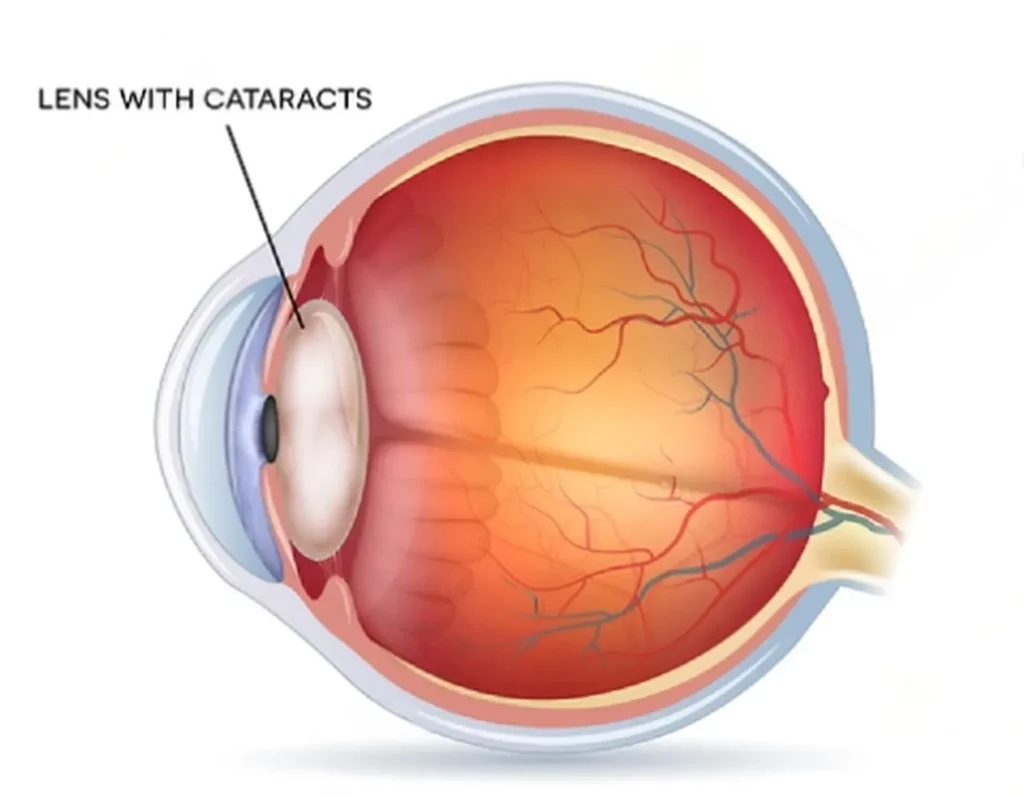
Non-surgical options for cataracts
Cataracts are one of the most common eye diseases that I see in my clinic in the Orlando metro area. Cataracts are an opacification of the eye’s natural lens. Typically, people are born with clear lenses, and as they reach late middle age and beyond, that clear lens inside of the eye starts to get more cloudy. As the lenses continue to get cloudier, they start to affect the vision, much like a foggy or dirty window.
One aspect of cataracts that often gets overlooked by my patients is that cataracts can also change a person’s glasses prescription, sometimes quite dramatically. This all depends on the type of cataract a person has. Some cataracts have a greater effect on the glasses prescription, and some cataracts have less of an effect.
Sometimes, a cataract will cause a “myopic shift” in the glasses prescription. In other words, it will make a person more “nearsighted”.
Therefore, early on in the development of a cataract, one possible non-surgical treatment is to try new glasses or contact lenses, if a patient is not yet interested in cataract surgery. If the “myopic shift” was the main cause of the vision loss, this will often make a big difference in the short term. Of course, long term, cataract surgery is the best option, but patients aren’t always ready to jump to surgery immediately. Patients can ask their local eye doctor if a change in glasses will help their vision, and to what extent. These patients should be mindful that glasses will likely not make their vision perfect in the presence of a cataract. They should be looking for “improvements” at this point, mindful that the cataract will still have an effect regardless of what they do with glasses or contacts.
Dry eye can also sometimes masquerade as cataracts, causing blurry vision. However, the blurriness caused by dry eye as generally less severe than cataracts. Also, the blurriness caused by dry eye is more often “intermittent”. In other words, it fluctuates more, coming and going. It’s often associated with an irritated or gritty feeling in the eyes.
To make things more complicated, many of my patients who have cataracts also have dry eye concurrently! This is very common for them to have both conditions. If the dry eye is severe, I’ll recommend that they treat the dry eye for a few months before we sign them up for cataract surgery. This will get the surface of their eye in better condition and prepare them for cataract surgery.
In addition, if the dry eyes are severe and the cataracts are only mild, sometimes just treating the dry eye alone will make the patient 50-75% better. This may postpone the need for cataract surgery for a few more years.
Finally, patients experiencing severe glare from the cataracts will sometimes notice their symptoms are much worse at nighttime. For the sake of safety, these patients should consider giving up evening driving until they have their cataracts removed surgically. There are some tinted glasses options that can help with the daytime glare of cataracts over the short term, but this is more of a band-aid over the longer term.
If you have cataracts and live in Oviedo, Winter Springs, Winter Park, or the Orlando metro area, I’m currently accepting new patients.
Until next time,
-Jeff
